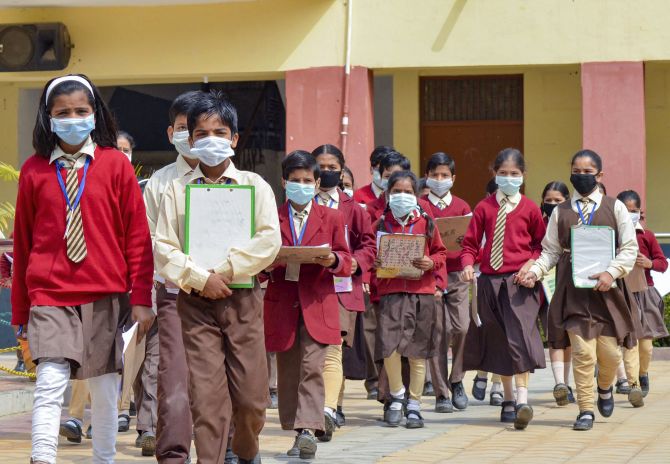The Delhi disaster management authority (DDMA) on Monday issued guidelines for reopening of faculties within the capital . The Aam Aadmi Party (AAP) government has announced that schools and academic institutions can resume physical classes during a phased manner from September 1.
According to the newest DDMA guidelines, maximum 50 per cent of scholars per classroom could also be called depending upon capacity and therefore the timetable should be prepared as per occupancy limit of classrooms. the tutorial institutions must follow the coronavirus disease (Covid-19) norms as specified by the govt , the DDMA said.
The agency has also directed schools to stagger lunch breaks to avoid crowding. These breaks should held in open areas, consistent with the rules .
The schools and colleges are asked to line up quarantine room for emergency use and discourage the routine guest visits. The DDMA has also directed the faculties to not allow students and teachers living in Covid containment zones to return to educational institutions.
From September 1, all government schools will open for classes 9 to 12, all private schools also can resume classes for 9 to 12 standards. Coaching centres also can start classes for college kids of 9 to 12 standards. No decision has been taken on reopening junior classes yet.
Authorities decided to reopen the faculties on account of a marked improvement within the Covid-19 situation in Delhi.
Delhi added 32 fresh cases of Covid-19 and 0 fatality for fourth consecutive day on Sunday. The positivity rate within the capital in 0.04 per cent. it’s stayed below 1 per cent for quite 90 days. Delhi has added a daily average of 32 cases over the past seven days.
Schools in Delhi are shut since March last year when Covid-19 cases first started rising within the country. Classes resumed for a quick period in January and February this year, but were suspended in April as a brutal second wave (fourth for Capital) of Covid-19 stretched the health care infrastructure to its limits.






